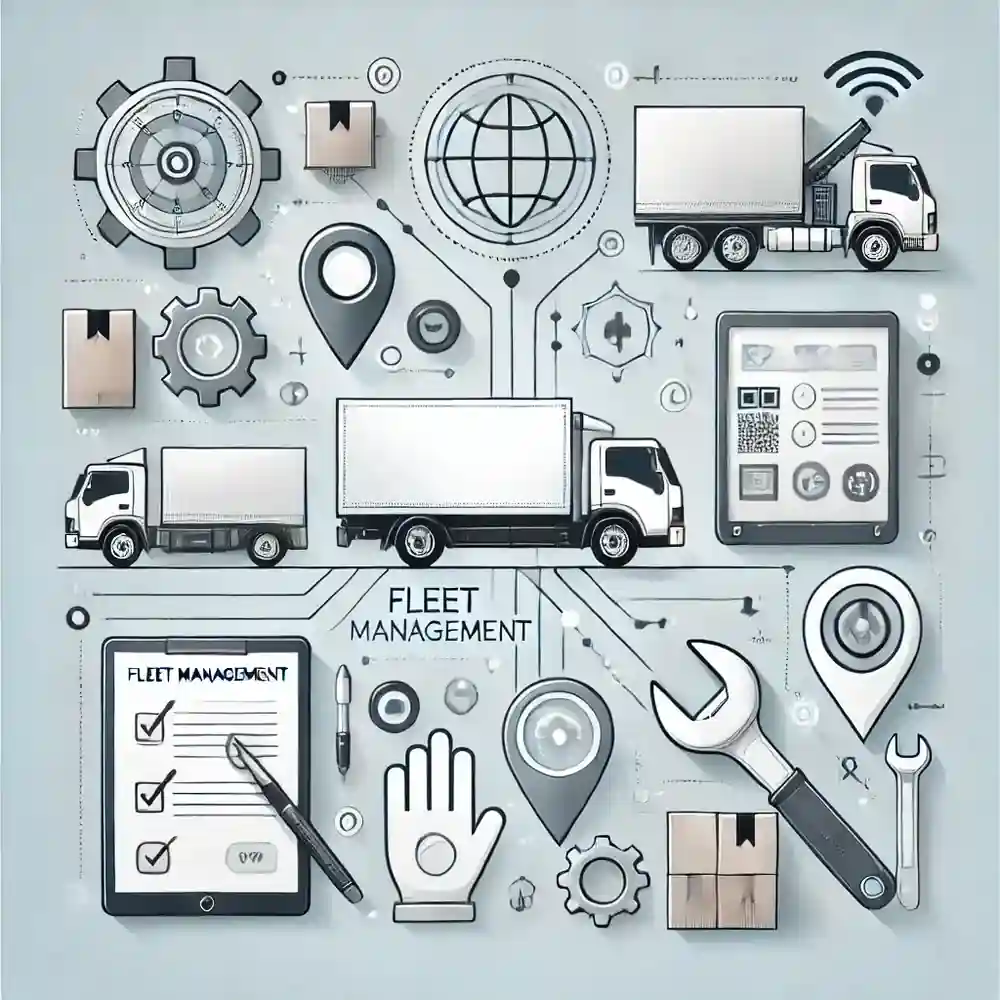
Fleet Management: Maintaining and Upgrading Moving Vehicles
Efficient fleet management is one of the most critical components of running a successful moving company. Implementing fleet maintenance best practices with optimization strategies not only ensures timely service and customer satisfaction but also reduces operational costs in the long term. In this blog, we’ll cover essential tips on how to manage your moving fleet effectively, including staying compliant with FMCSA compliance requirements and adopting sustainable fleet management practices for greater efficiency.
1. The Importance of Regular Maintenance

Maintaining your fleet is crucial for the safety and reliability of your moving services. Regular maintenance prevents unexpected breakdowns that could delay moves and frustrate customers. According to the Federal Motor Carrier Safety Administration (FMCSA), a significant number of accidents in the moving industry are caused by mechanical failures, many of which are preventable with proper vehicle upkeep.
Key Maintenance Tips:
- Regular Inspections: Schedule routine checks for all moving vehicles to identify any potential issues early.
- Tire Maintenance: Ensure that tires are in good condition and properly inflated. Under-inflated tires can decrease fuel efficiency and increase wear and tear.
- Engine and Transmission Care: Regular oil changes and checking the transmission fluid are vital for vehicle longevity and performance.
2. Upgrading Your Fleet for Efficiency

Upgrading vehicles is another crucial aspect of fleet management, especially when considering fuel efficiency and environmental impact. With fuel prices fluctuating and sustainability becoming more important for customers, upgrading to more efficient models can save costs and attract eco-conscious clients.
Key Upgrades to Consider:
- Fuel-Efficient Models: Consider investing in hybrid or electric moving trucks that can significantly reduce fuel consumption and emissions.
- Telematics Systems: Installing telematics systems can help track vehicle performance, optimize routes, and monitor driver behavior for more efficient fleet management.
- Safety Features: Newer vehicle models come equipped with advanced safety features like collision detection and automatic braking systems, reducing the likelihood of accidents.
3. Fleet Management Technology: Streamlining Operations

Fleet management technology has advanced significantly in recent years, offering moving companies better control over their operations. GPS tracking, real-time updates, and route optimization software can streamline the entire moving process, resulting in faster deliveries and lower fuel costs.
Key Benefits of Fleet Management Software:
- Route Optimization: GPS tracking and route planning software can help drivers avoid traffic, reduce idle time, and find the quickest path to the destination.
- Fuel Monitoring: Monitor fuel consumption across the fleet and identify areas where improvements can be made.
- Preventive Maintenance Alerts: Advanced software can alert managers when a vehicle is due for maintenance, ensuring that no routine service is missed.
4. Compliance with Industry Standards and Regulations

To ensure that your fleet operates legally and efficiently, it’s crucial to stay compliant with industry standards and regulations. The FMCSA sets strict guidelines for vehicle maintenance, driver training, and safety inspections. Non-compliance can result in costly fines and potential shutdowns.
Key Compliance Tips:
- Keep Records: Maintain detailed records of all vehicle maintenance, repairs, and upgrades to ensure compliance with industry standards.
- Driver Training: Regularly train drivers on safety protocols and ensure they are aware of any changes in regulations.
- Emissions Standards: Stay updated on emissions regulations to ensure your fleet complies with environmental laws.
Conclusion
Managing and upgrading your fleet is crucial for the success of a moving company. By following fleet maintenance best practices, considering optimization strategies, and adhering to FMCSA compliance requirements, you can increase safety, efficiency, and profitability. Incorporating sustainable fleet management practices not only helps reduce your environmental impact but also attracts eco-conscious clients. At TopHelpers we connect customers with movers who prioritize reliability, efficiency, and safety, ensuring a smooth and sustainable moving experience.
Popular on Tophelpers

Beware of Moving Scams: Nationwide Crackdown Announced by U.S. Officials

What Customers Will Love About TopHelpers – Movers Hiring Platform
